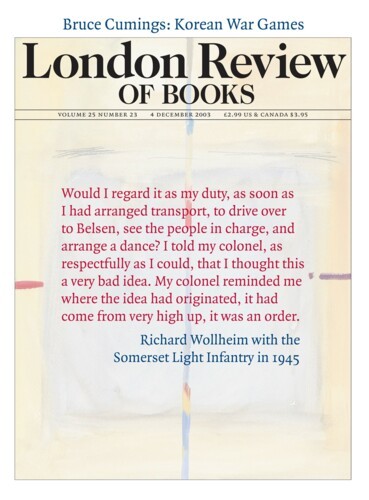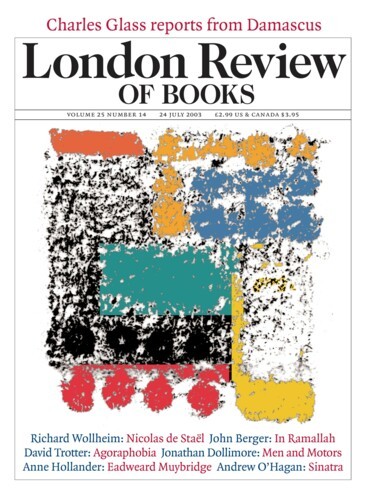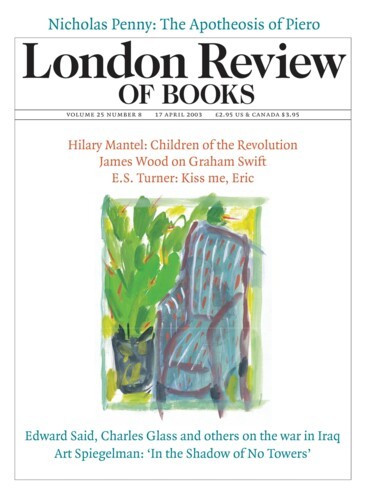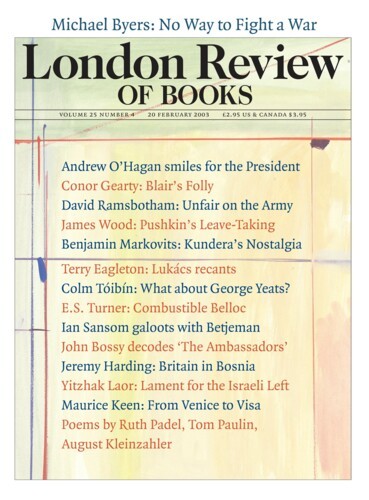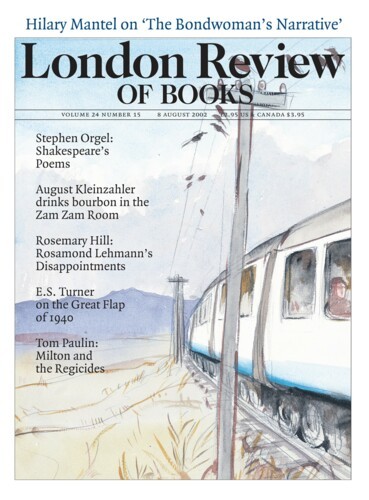Petting Cafés! wartime spivs and dodgers
E.S. Turner, 4 December 2003
“Outstanding among wartime shortages was common sense. Why certain acts were illegal was not always clear at the time and is now incomprehensible. The Transportation of Flowers Order, which banned sending cut flowers by rail, allowed them to be sent by petrol-wasting road transport. Under lighting restriction orders, a Naval officer at Yarmouth was fined for striking matches in a telephone box to read the dial.”
